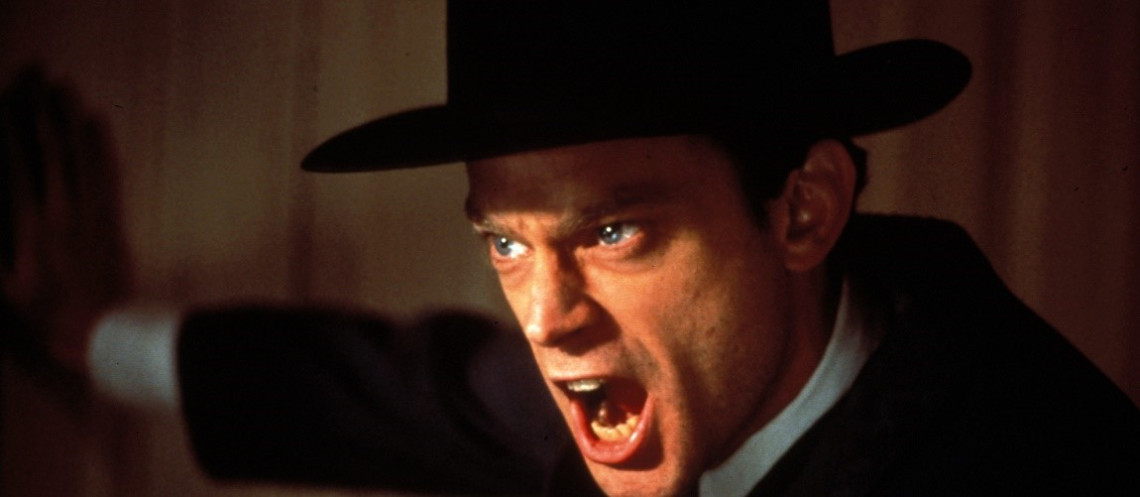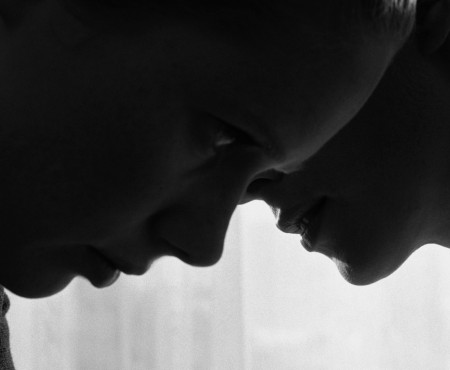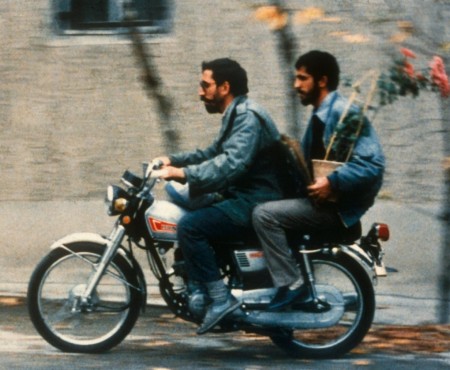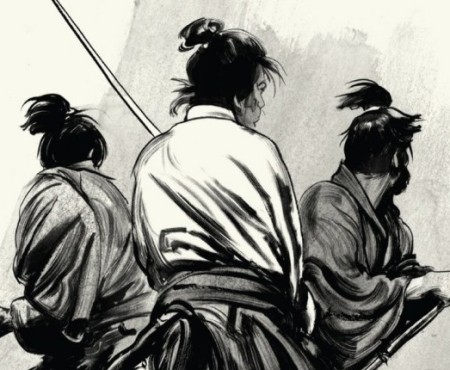“No man with a good car needs to be justified!” Hazel Motes (Brad Dourif) spits his new gospel of a world that never fell and a man that never needs to be saved in the thick of America’s Bible belt. For those unfamiliar with the theological vernacular, Wise Blood is likely a grotesque novelty. But for many people raised in such a background or familiar with its language and ideas, John Huston’s adaptation of Flanner O’Connor’s novel is steeped in a biting criticism of Southern Evangelicalism, a brand of Christianity that O’Connor finds fascinating yet ultimately unfulfilling.
Returning from World War II, Hazel decides to go to the city and preach of a new church. Unlike the church of his youth or the many churches in the area, this is a church without Christ. Motes says the crucifixion happened, but he says it has no power because there was no sin for Christ to die for. Instead, each man has nothing to be saved from and nothing to believe in.
Hazel preaches his message with such vitriol and passion; it becomes more than just trying to prove his message to the world, but also to himself. He speaks with such anger, resentment and fervor that it’s clear he’s preaching from a place of past trauma. This supposition is confirmed by flashbacks to his grandfather (John Huston) preaching messages of hellfire and brimstone. In contrast, Hazel’s message to the world is one where there’s no fear of hell because there’s no such thing as sin.
Huston embodies Motes’ desire to go about living under his own power and salvation in the rickety care he buys. It’s a perfect American symbol of self-reliance and freedom. As long as his car can run, Motes doesn’t need God or Jesus or any of that old-time religion nonsense that nags the recesses of his mind. The only problem is that Motes is in denial about the state of his car.
The object of his self-reliance constantly fails him, it takes a few times to start, it runs out of gas or needs to be replaced. In one scene, Motes is given a bit of gas to get going again given freely and generously by a stranger, instead of recognizing that he can’t even fuel the object of his own self-salvation, Motes goes on to brag about his car moments later.
Finally, the sheriff pulls him over and out of pure spites asks Motes to get out of the car and then proceeds to kick the rickety vehicle off the road. In O’Connor’s symbolism, the message is clear, the full weight The Law, in the Old Testament sense of the term, destroys any claim of self-salvation. The car ends up in a pond and Motes must finally face, as he puts it, that he is “unclean.”
One point of contention between lead Brad Dourif and John Huston is whether or not Hazel Motes converts at the end of the film. Dourif thought he converted with Huston things he died an unbeliever. In perhaps the most essential passage in the books which never fully makes it into the film, O’Connor writes, “Later he saw Jesus move from tree to tree in the back of his mind, a wild ragged figure motioning him to turn around and come off into the dark where he might be walking on the water and not know it and then suddenly know it and drown.”
In his final days, Hazel begins finding ways to punish himself in an attempt to purify himself. He blinds himself, wraps bailing wire around his chest, and puts rocks and shells in his shoes. The passage from the book suggests that Hazel never fully converts because even in the end he tries to rely on himself for his own justification, trying to take on the weight and punishment for his sin. When Motes’ Landlady proposes that they get married, he runs away. Instead of dying in a ditch, he’s found by the law and dragged back to his landlady to pay his rent. He can’t run from final judgment.
Wise Blood is O’Connor’s dark representation of the Evangelical South. While cute sayings like “Jesus Called” open the film, it’s Motes’ quest for self-salvation that defines the Evangelical tradition to O’Connor. By the end the message is clear: there’s clearly something wrong with us and nothing we can do to save ourselves. Our cars are all in ditches, we can’t cleans our bodies, we think we’ve wiser blood, but we don’t.




















